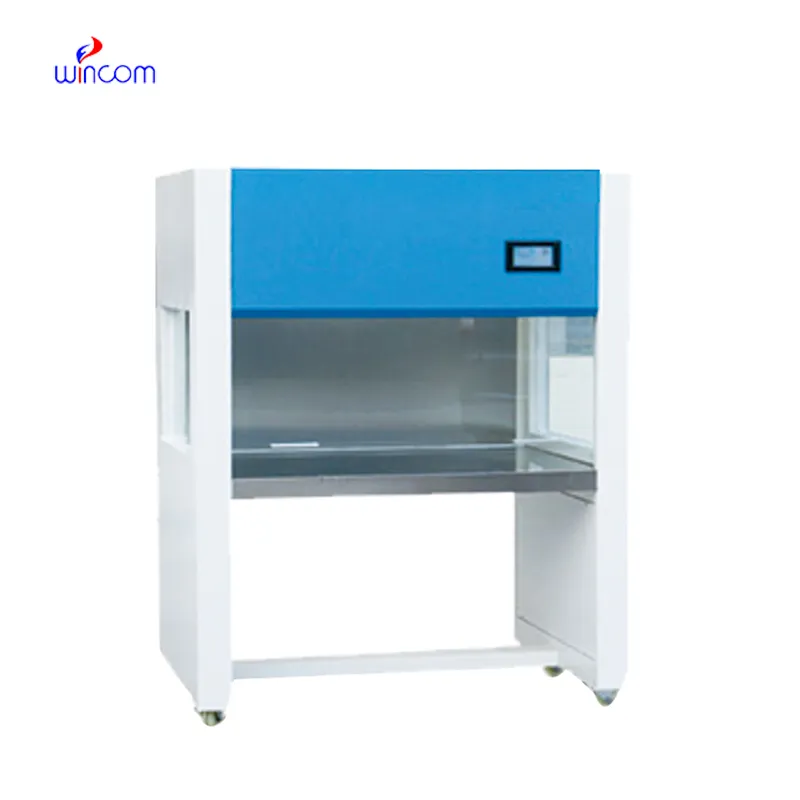
The laser microscope combines technological innovation and practical design, with distortion-free, clear-quality imaging at every magnification. The mechanical stability and focus precision controls of the laser microscope ensure accurate specimen positioning. The laser microscope enhances sample visibility in varying light conditions using a strong illumination system. Optional camera adapters and measuring software are offered to extend its use, making it suitable for various scientific and educational environments.

Applications of the laser microscope include nanotechnology and public health. In biotechnology, it provides visualization of genes and interactions of cells. In food safety testing, the laser microscope identifies contaminants and microorganisms that affect product quality. In materials engineering, it assists in failure analysis and accurate measurement of microscopic structures. The laser microscope also finds application in archaeology, enabling scientists to study mineral residues and microfossils that reflect environmental conditions in the past.

The future of the laser microscope is influenced by digitalization and smart automation. More efficient imaging sensors will allow the laser microscope to identify three-dimensional structures with unprecedented precision. Artificial intelligence will analyze microscopic images, reduce human errors, and optimize research productivity. Wireless communication and cloud connectivity will facilitate collaboration globally with remote monitoring and immediate data exchange. The laser microscope will be an entirely networked instrument that closes the gap between laboratory precision and data-driven research outcomes.

A well-maintained laser microscope gives reliable performance and long operating life. Check optical elements regularly for dust, fingerprint, or oil residue. Use only authorized manufacturer cleaning materials to prevent lens coating damage. Store the laser microscope upright, supported, and covered when not in use. Check focusing mechanisms for smooth operation and illumination system for uniform brightness. Standard maintenance procedures minimize downtime and preserve imaging quality for education and research.
A laser microscope transforms the observation of the unobservable world, revealing patterns, textures, and life beyond the naked eye. It achieves this by illuminating or electronizing a sample by transmitting light or electrons through or above it to produce a magnified image. The laser microscope has widespread uses in science, industry, and education to scan biological tissue, metal surfaces, and nanomaterials. Its ability to unveil subtle details makes it a must-have instrument of observation, measurement, and discovery in modern science.
Q: What is the lifespan of a microscope? A: With proper care and maintenance, a microscope can last for many years, providing consistent optical performance and stability. Q: How does the objective lens affect image quality in a microscope? A: The objective lens determines magnification and resolution; high-quality lenses produce sharper, more accurate images of specimens. Q: Can a microscope be used to view live specimens? A: Yes, many microscope models support live-cell observation, allowing users to study biological processes in real time under controlled conditions. Q: What is the function of the condenser in a microscope? A: The condenser focuses light onto the specimen, enhancing illumination and improving contrast for clear image viewing. Q: How should a microscope be transported safely? A: Carry the microscope with both hands—one under the base and one on the arm—to prevent damage or misalignment of delicate parts.
I’ve used several microscopes before, but this one stands out for its sturdy design and smooth magnification control.
The hospital bed is well-designed and very practical. Patients find it comfortable, and nurses appreciate how simple it is to operate.
To protect the privacy of our buyers, only public service email domains like Gmail, Yahoo, and MSN will be displayed. Additionally, only a limited portion of the inquiry content will be shown.
Could you share the specifications and price for your hospital bed models? We’re looking for adjus...
We’re currently sourcing an ultrasound scanner for hospital use. Please send product specification...
E-mail: [email protected]
Tel: +86-731-84176622
+86-731-84136655
Address: Rm.1507,Xinsancheng Plaza. No.58, Renmin Road(E),Changsha,Hunan,China